After a year, Oklahoma City's MLK neighborhood is still changing the narrative: 'We can do this'
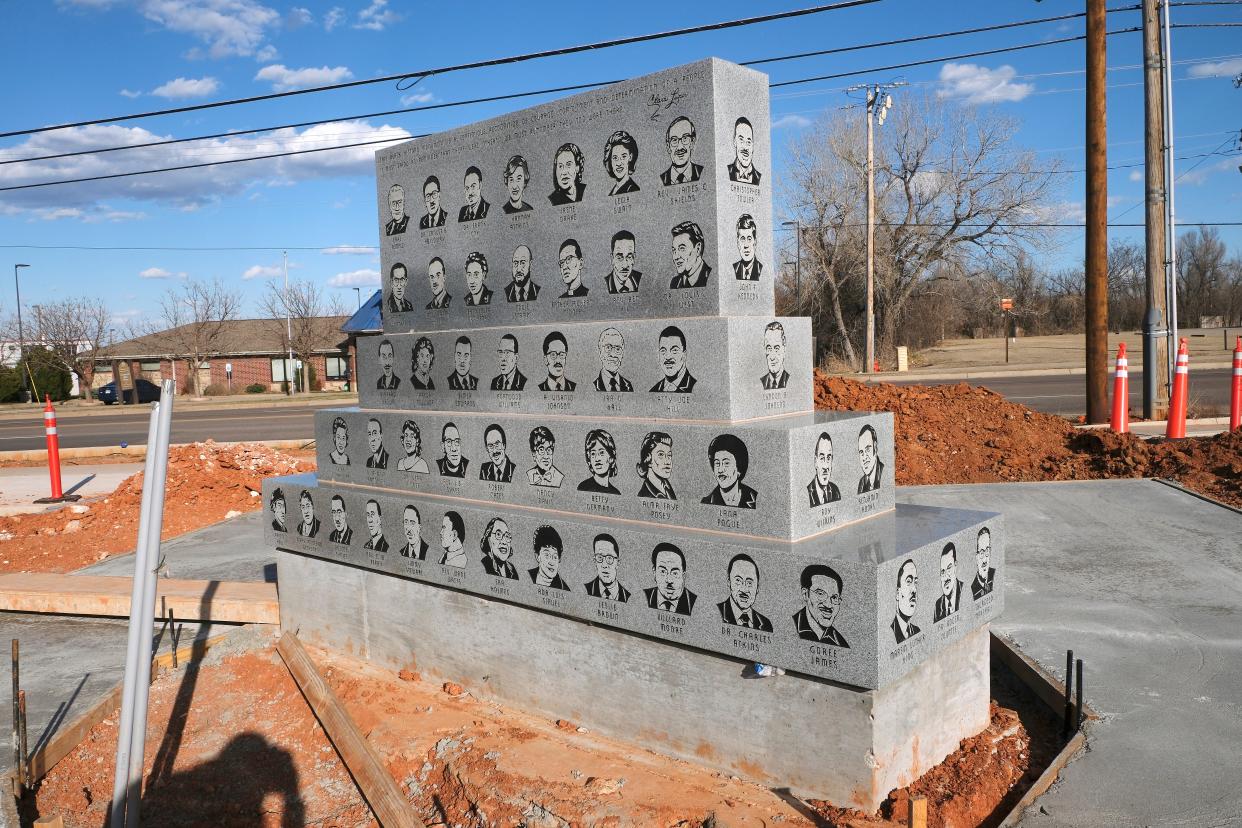
Two summers ago, Tracy Combs stood on the porch of a home she’d inherited from her grandmother in Oklahoma City’s Martin Luther King Neighborhood. A former radiologist, Combs had moved back to northeast Oklahoma City from Edmond not long after her husband’s passing. Looking to her left and looking to her right that day on her porch, she realized something needed to change.
The neighborhood sits between NE 30, Martin Luther King Avenue, NE 23 and Glen Ellyn Avenue. It is home to just under 800 residents and, as part of the city’s northeast community, is historically majority Black.
It’s also a neighborhood, Combs said, that seriously lacks resources and investment. Many homes are boarded up and residential lots have been left vacant throughout the area, and some locals have told Combs they often don't feel safe just stepping outside their homes.
“This neighborhood has to do better,” Combs said. “I’m here for a reason and a purpose, and that purpose is to get this neighborhood to become one so that everyone can enjoy their neighborhood. I mean, why not? We can do this.”
Soon afterward, Combs assembled a team of like-minded residents to form the Martin Luther King Neighborhood Association, whose purpose is to change the narrative about the neighborhood from a high-crime, low-income and recreationally dry area into a safer, resource-filled and life-affirming community.
Combs then met City Planner Shannon Entz at the Ralph Ellison Library to begin discussing more about the Strong Neighborhoods Initiative. SNI, as it is often called, is a revitalization program using federal funds from the U.S. Department of Housing and Urban Development to make targeted investments in struggling neighborhoods. Success is measured several ways, including home values, private investments and crime rates.
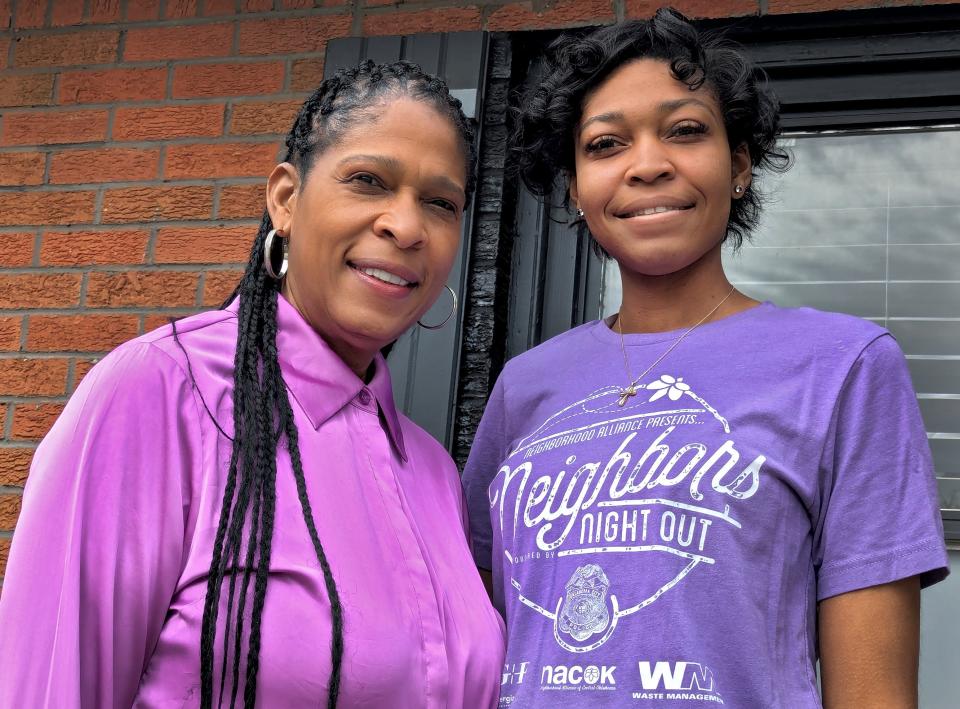
Since 2012, SNI already has seen great success with revitalization efforts in neighborhoods such as Classen-10-Penn, Classen’s North Highland Park, Culbertson East Highland and Capitol View. About the time Entz first met Combs, SNI was about to ask city leadership to extend its five-year commitment with the south side’s Capitol Hill neighborhood by another two years so that work could continue there. Conversations between Combs and Entz convinced both that the MLK neighborhood could be an eligible candidate for the program's next five-year effort.
The group applied for the SNI program and, out of six applicants, won the selection committee's approval. City council also approved the neighborhood’s addition to the program in January 2023, and the association was later awarded a first-year $5,000 grant to start boosting the area.
Related: How three OKC neighborhoods are experiencing revitalization through a city-funded program
Neighborhood leaders focus on beautification, parks
First priority for the neighborhood group was determining the program's scope and further solidifying the area's sense of identity. Bringing about that change in mindsets for their neighbors has been one of the most difficult obstacles to overcome, said Combs' daughter, Dy'mond.
“I think the hardest part right now is galvanizing the neighborhood and showing them something different,” Dy’mond Combs said. “When something has been some way for such a long time, it's hard to break that mold.”
But the efforts already are beginning to bear fruit. When an oil wastewaster disposal well on NE 30 began leaving a strong odor in the air of nearby homes, the residents complained to city authorities. After The Oklahoman began looking into those complaints last year, the well’s owner pledged to change his company’s disposal process in order to lessen the smell.
'We deserve better.' OKC neighborhoods fight against decades of environmental injustice
Neighborhood leaders also have met with Entz and SNI staff to finalize different strategies going forward. Partnership with nonprofits for the area's housing efforts is one major component, while beautification of the neighborhood's public spaces is another.
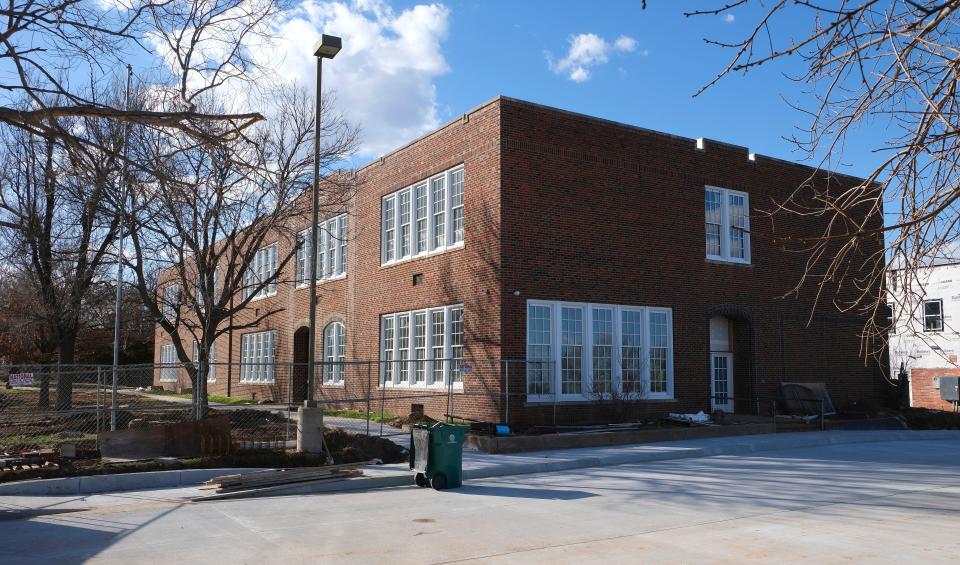
Existing homes in the neighborhood are in need of exterior maintenance, energy efficiency and greater access for residents with disabilities. Leaders in the community hope to see an increase over the next several years in affordable market-rate homes and safer rental properties.
Combs said SNI is actively working to connect neighbors with legal services to help clean up titles and deeds. Nonprofits and service providers also are expected to help bridge the gaps with other concerns, such as housing rehabilitation and down-payment assistance to attract more long-term homeowners.
One development, the Harmony — Marcus Garvey Apartments, is expected to open at 1537 NE 24 later this year. The site of a former school, the building is being renovated and repurposed into affordable housing for older adults and their families. Combs is already in talks to host some of the neighborhood association's activities at that location's new event center.
The group also is increasing awareness of different SNI programs that could help neighbors with maintenance needs. Entz said more than 20 neighbors have signed up for SNI's Safe and Tidy Program, which assists with debris and hazardous tree removal. Small business owners also were encouraged to apply for SNI's Storefront Improvement Program, which would reimburse neighborhood businesses for repair or replacement of their facades, windows, front doors or awnings.
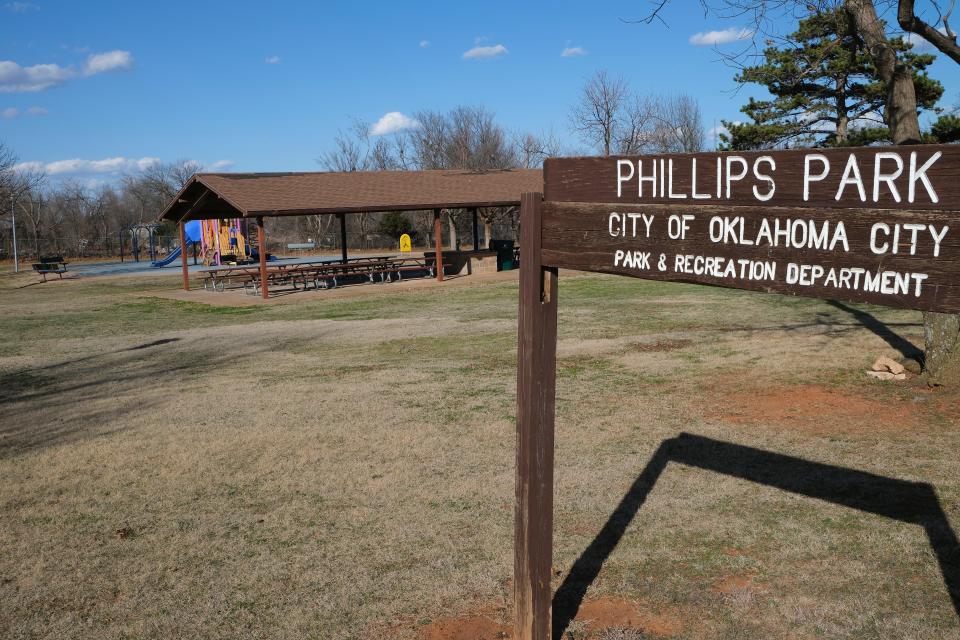
Dy'mond Combs is hopeful this renewed interest in maintenance and beautification extends to the neighborhood's Phillips Park, which she said is still in need of some infrastructural support and better amenities for children who frequent the park.
"I'm really excited to see what improvements are going to do for the overall beautifying of the neighborhood," Dy'mond Combs said. "That's really where my heart's at, especially in the park. Just going through, renovating it all, doing playground equipment, the pavilion ... walking trails, just to revamp the whole park."
Related: Can $154 million save Oklahoma City parks? See what is being planned
City staff recently approved the group’s request for several sign-toppers reading "MLK Neighborhood" to be placed throughout the neighborhood. To further boost awareness and community pride, the neighborhood association also hosted two events in recent months: a successful "Neighbors Night Out" block party and a Christmas event. Entz was among the estimated 100 people who attended the Christmas party.
"The enthusiasm from MLK’s leadership for improving their neighborhood is contagious," Entz said. "They were critical in the development of their revitalization strategy and are already doing a fantastic job of helping with its implementation. They also have young members of the neighborhood involved, which is always a great sign that these efforts will be sustained over time."
Local churches push for more homeownership, development
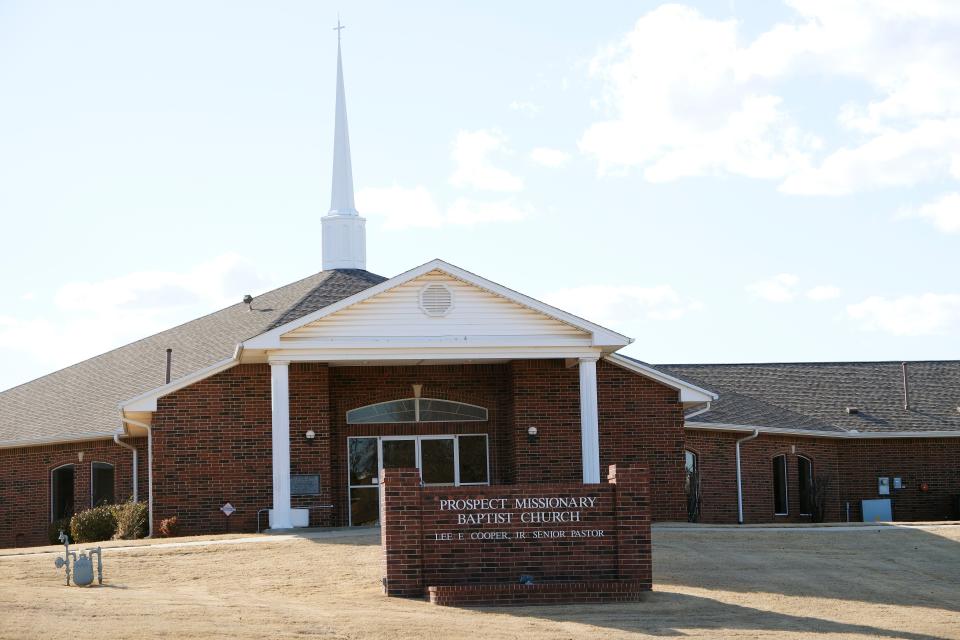
The association also hopes to collaborate further with neighborhood houses of worship, including Evangelistic Baptist Church of Christ and Prospect Baptist Church.
The Rev. Lee Cooper, longtime pastor of Prospect Baptist Church, also served as an interim city council representative for Ward 7 in 2018 and had been a planning commissioner for several years before that. He said he was excited to see ongoing development from investors and lenders beginning to manifest in the formerly vacant lots that dotted northeast Oklahoma City neighborhoods for so long.
That real estate development is best exemplified by the much-heralded EastPoint hub on NE 23, which in recent years has grown to host a health clinic, a grocery store, a pizza parlor, a coffee shop, a breakfast restaurant, a patio bar and a community violence intervention program. A nearby boutique hotel project and a MAPS 4-related affordable housing complex just a few streets north of it are also in the works, but Cooper said more needed to be done to secure long-term residency in the area.
"We, of course, would like to see more homeownership, and not just people being renters," Cooper said. "That homeownership really becomes the stabilizing force in any community, and so we really want to see and encourage that in our congregation."
More: How northeast OKC leaders are using prayer to raise awareness of challenges their community faces
Cooper also highlighted renovations of the Freedom Center on MLK Avenue ahead of the planned Clara Luper Civil Rights Center, an upcoming museum dedicated to Oklahoma City's civil rights history which he hopes will drive further investment in the city's northeast community.
"As you look at the major corridors that lead into our state's capitol, NE 23rd St. is a major thoroughfare and major corridor, but the infrastructure — just the basic infrastructure — is not even there," Cooper said. "For anybody to invest, they would have to literally provide what the city should be providing for northeast Oklahoma City, but that has been neglected."
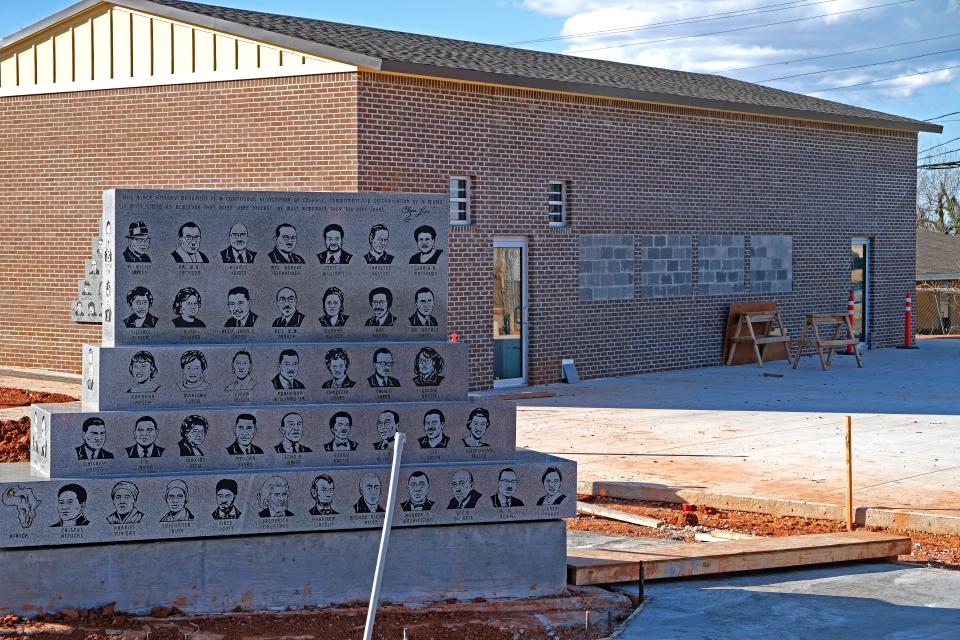
Combs and other neighborhood leaders know it is a tall task to advocate for so much change from the ground up, but she says it is the best way to honor those who came before them, including the civil rights icon after which the neighborhood was named in the 1980s.
"We are just so ready to change the dynamic of this neighborhood," Combs said. "We want to change it all the way around. Martin Luther King said he had a dream, so what we need to do is keep the dream moving forward."
Dy'mond Combs, who lived in Edmond most of her life before relocating with her mother to northeast Oklahoma City, recognized the stark disparities between what she experienced in Edmond and what she sees in the MLK neighborhood. A former law student now involved in mentorship and ministry, she prays the neighborhood association can maintain a vision for a holistic approach to bettering the area.
"I don't want the neighborhood to change into Edmond, but I want it to just be place that is safe, where people could get resources to things to better the quality of their life," she said. "I want people to have the education that I did. I want people to be able to walk outside and not be afraid. I want them to be able to go to a pool and swim. I want them to be able to go to a shopping center and get a job. That's why I wanted to see a change. I don't think it should be so hard just to live."
This article originally appeared on Oklahoman: MLK neighborhood in OKC is revitalizing, changing the narrative

